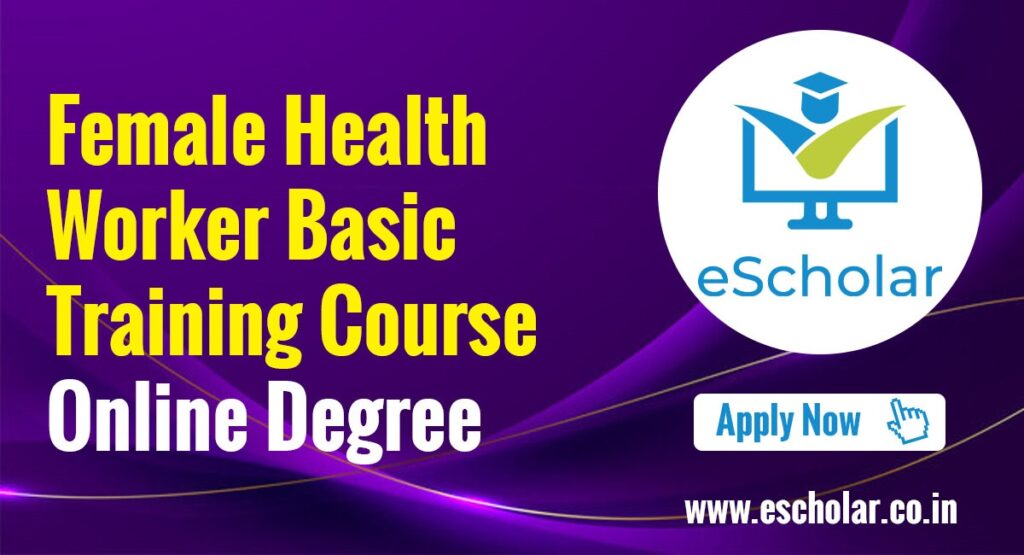Female Health Worker Basic Training Details, Subjects, Career.

In communities around the world, access to quality healthcare remains a pressing issue, particularly for women. Addressing this gap requires dedicated individuals with the knowledge and skills to provide essential healthcare services at the grassroots level. The Female Health Worker Basic Training course is designed to equip women with the training they need to become frontline healthcare providers, bridging the gap and improving access to vital services.
Course Duration and Eligibility:
The Female Health Worker Basic Training course typically spans 6 months, offering a comprehensive curriculum that covers essential aspects of healthcare delivery. Eligibility requirements for this course vary by region and institution, but generally, candidates must have completed a minimum level of education (such as high school) and demonstrate a passion for community health and service.
Why choose this course:
Studying the Female Health Worker Basic Training course offers numerous advantages, both personally and professionally. Here are a few key benefits:
Empowerment: By undergoing healthcare training, women gain a sense of empowerment and autonomy over their health and that of their communities.
Career Opportunities: Graduates of Female HWB Training program have access to a wide range of career opportunities in the healthcare sector, from working in clinics and hospitals to serving in rural or underserved areas.
Impact: As frontline healthcare providers, female health workers play a crucial role in improving health outcomes and reducing disparities, particularly for women and children.
Personal Fulfillment: Working in healthcare can be incredibly rewarding, allowing individuals to make a meaningful difference in the lives of others and contribute to the greater good.
Major Subjects and Syllabus:
The Female HWB Training degree covers a broad range of subjects essential for healthcare delivery in community settings. Some major subjects included in the curriculum may include:
- Anatomy and physiology
- Maternal and child health
- Family planning and reproductive health
- Nutrition and hygiene
- Communicable diseases and their prevention
- Basic clinical skills and first aid
Skills Developed from this course:
Upon completion of Female HWB Training degree, graduates develop a diverse set of skills that are invaluable for their roles as frontline healthcare providers. These skills may include:
- Clinical assessment and basic medical treatment
- Counseling and communication skills
- Health education and promotion
- Community outreach and mobilization
- Record-keeping and documentation
- Collaboration with other healthcare professionals
Job sectors available:
The Female HWB Training degree opens up a wide range of career opportunities in the healthcare sector. Graduates may find employment in various settings, including:
- Government health departments and agencies
- Non-governmental organizations (NGOs) and community-based organizations
- Primary healthcare centers and clinics
- Maternity hospitals and birthing centers
- Schools and educational institutions
- Rural and underserved communities
Conclusion:
The Female HWB Training program offers a pathway for women to become agents of change in their communities, promoting health and well-being for all. Through a combination of theoretical knowledge and practical skills, graduates of Female HWB Training program are equipped to address the healthcare needs of women and families, particularly in underserved areas. By investing in the education and empowerment of female health workers, we can create healthier, more resilient communities where everyone has access to the care they need to thrive.
For More Details:
E-Mail: studentsupport@escholar.co.in
Visit: www.escholar.co.in


